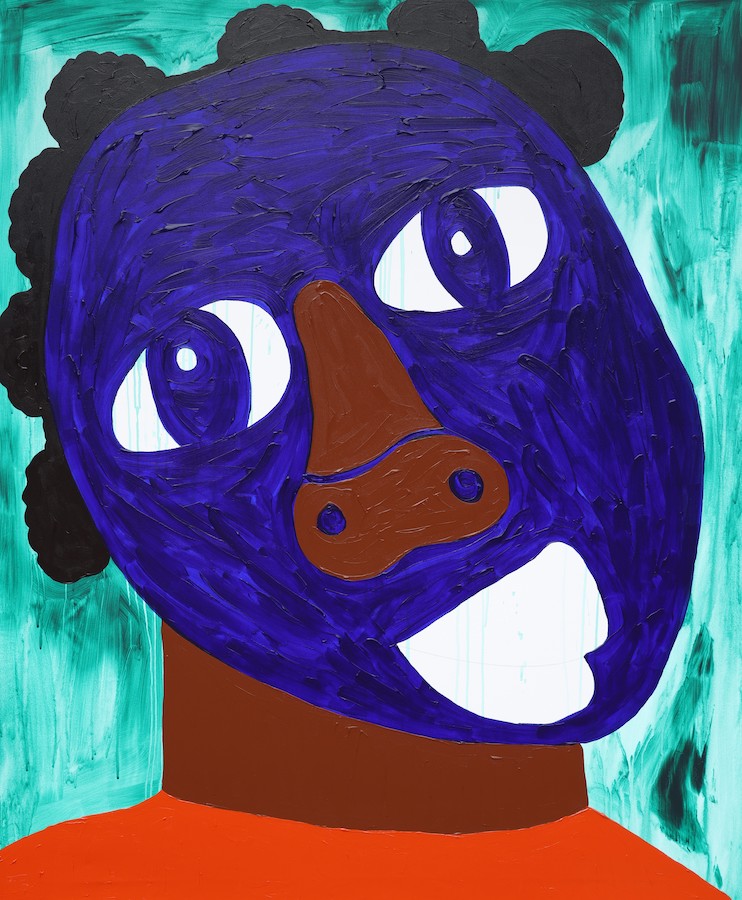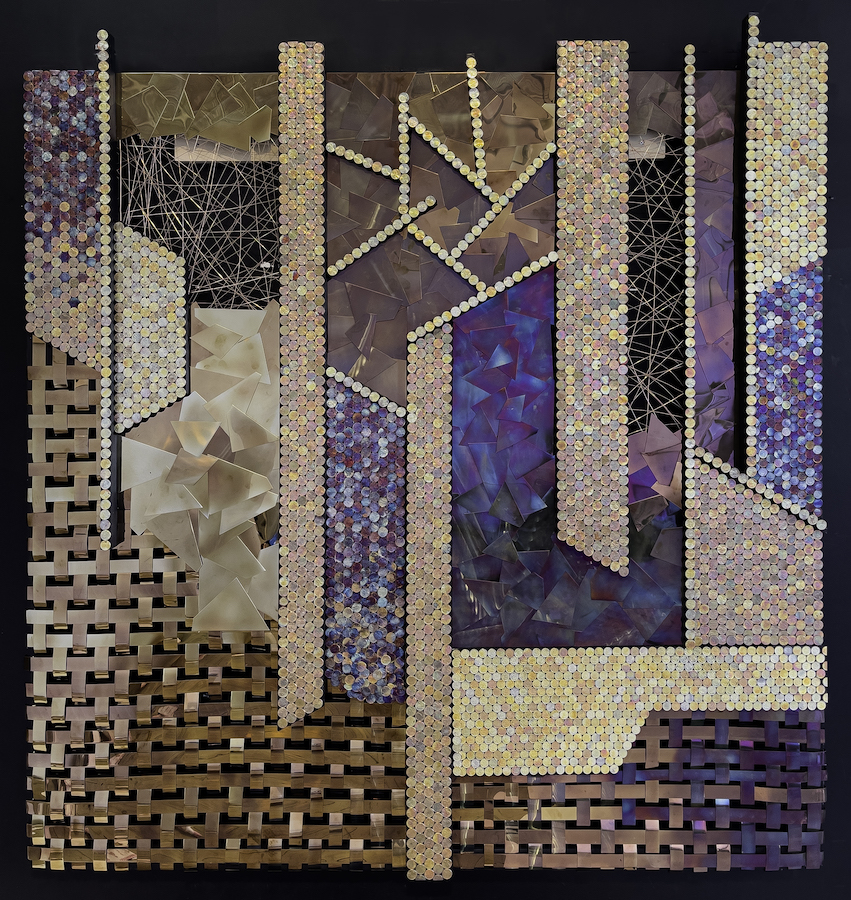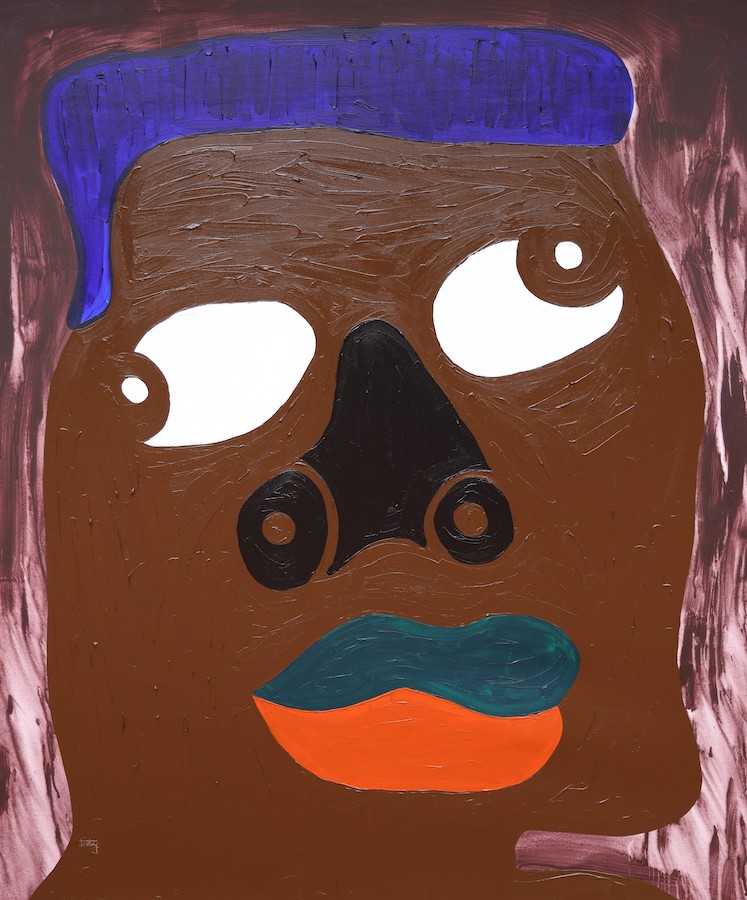DUBAI: Works by three of Ghana’s top pioneering artists will go on display at a selling exhibition at Christie’s London staged in collaboration with the Dubai-based Efie Gallery.
Titled “Material Earth,” the exhibition presents a total of 10 artworks by Ghanaian-born El-Anatsui, one of the world’s most sought after contemporary artists, alongside two rising stars — Yaw Owusu and Isshaq Ismail — until May 13 at Christie’s London on 8 King Street in Mayfair.
While El-Anatsui and Owusu transform everyday objects into forms of complex beauty with inherent socio-political messages, Ismail’s paintings feature captivating grotesque portraits of anonymous individuals inspired by those the artist sees every day in his hometown of Accra, Ghana.

El Anatsui, Silent one, Aluminium and copper wire, 320 x 310 cm. (Supplied)
On view for the first time in Europe is a new series of wooden sculptures by El-Anatsui replete with the artist’s captivating abstract forms colored in vibrant hues.
The exhibition takes place during a time when the international market’s demand for art from Africa is soaring. Over the last few years, art from the continent has become the subject of bidding wars at global auctions such as Bonhams, Piasa, Christie’s, Sotheby’s, Strauss and Phillips. In the first half of 2019, international sales of art from Africa generated a total of $25.3 million. According to Statista, art from the continent contributed a sum of $13 billion in 2018 to the global art market and is predicted to rise to $15 billion by 2023.
Contemporary art from Ghana is particularly in demand — especially since Amoako Boafo’s “The Lemon Bathing Suit” (2019) sold for a stunning £675,000 ($881,432) against a £30,000-£50,000 estimate at Philips Contemporary Art Sale in February 2020. There was already a rising scene of young artists in the West African nation before Boafo’s incredible sale. His success has further inspired a new generation of Ghanaian artists eager to depict the history and contemporary culture of their country and make a profit in the process.

Isshaq Ismail, Sentiments 17, 2021, Acrylic on canvas, 60 x 50 in. (Supplied)
Artworks by Ismail, a rising young Ghanaian star, have recently fetched well over their high estimates at auction. At Sotheby’s dedicated African contemporary and modern sale in London on March 22, three of the artist’s works set personal sale records. “Nkabom 2,” an acrylic on canvas work depicting two heads, fetched £277,000, well above its high estimate of £50,000.
“The growing international demand has bred with it a new sense of respectability for the genre of art from Africa,” Kwame and Kobi Mintah told Arab News. “While previously artists and artwork from Africa has been overlooked, now they cannot be ignored.”
The “Material Earth” exhibition, a collaboration between Efie Gallery — which opened at the end of March 2022 with a blockbuster solo show of work by the great El-Anatsui — and Christie’s, marks a continuation of the auction house’s engagement with contemporary art from Africa. Most recently, the auction house has partnered with 1-54 Contemporary African Art Fair, staging recent editions of the fair in its Paris address and through an online auction in October 2021 that featured works by Nigerian Osinachi, marking the first NFT by a contemporary African artist offered by Christie’s Europe.

Yaw Owusu, New Paths on a Bare land, 2022, Stainless steel, copper, US pennies, Ghana pesewas, wood, 60in x 63in x 3in. (Supplied)
Also in October 2021, Christie’s in Dubai staged an exhibition in collaboration with Gallery 1957, a commercial gallery based in Accra and London, titled “[West] African Renaissance,” presenting a selection of works on canvas by some of the most esteemed artists working in West Africa.
“We are proud and honored that Efie Gallery chose Christie’s to collaborate with on this amazing show,” Isabelle de La Bruyere, head of Christie’s Chairman’s Office, told Arab News. “The talent and symbioses between the three artists represented, and even between our two brands, make this show an exciting and revealing moment for the contemporary African art market, and the international reach that alliances can create.”
The exhibition strives to incite discussion regarding the current global dialogue on climate change, sustainability and waste. Owusu, a recent graduate of the Pratt Institute in New York, incorporates otherwise valueless everyday materials, such as the coins he ritualistically uses, and upcycles them to create new objects of beauty, shimmering with newfound life.
“Fostering cross-cultural exchange is paramount to Efie Gallery’s mission, thus, our European debut, by way of unique collaboration Christie’s head office in London, helps further our mission and opens up this exchange into a new region for us,” Kwame and Kobi Mintah, co-founders of Efie Gallery, told Arab News.

Isshaq Ismail, Kwabena, 2021, Acrylic on canvas, 60 x 50 in. (Supplied)
“The viewer is invited to consider the materials that contribute to the complex beauty envisioned in the work of Anatsui and Owusu,” explain Kwame and Kobi Mintah. “When contextualized within the theme, the unaltered materials in work of Anatsui’s bottlecap assemblages become intent on revealing the ignorance of man in regard to the excessive waste that can be found in the world.”
On the other hand, when confronted with the work of Ismail, explain the Mintah brothers, “while the subjects are still visibly human, this loss of humanity is translated through the deformity of these grotesque figures, which in turn serves as a reflection of ourselves.”
While shows like “Material Earth” testify to the growing interest in art from Africa internationally, there are still major roadblocks to progress on the continent, such as limited art education and the development of a more prominent collector base.











